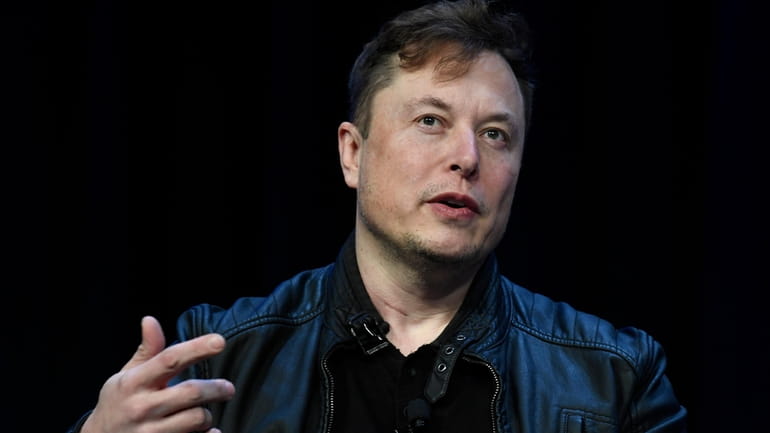X marks an antisemitic spot under Musk

Elon Musk’s social media platform X has seen a surge in overt antisemitism in the wake of his war with the Anti-Defamation League. Credit: AP/Susan Walsh
The latest chapter in Elon Musk’s rocky tenure as head of Twitter — now “X” — is an antisemitism scandal.
In the past several days, Musk has been in a war with the Anti-Defamation League, the 110-year-old organization combating anti-Jewish prejudice and other forms of bigotry. This war has also become an occasion for a surge in overt and repugnant antisemitism on the platform, not only condoned but in some cases arguably encouraged by the owner. This episode raises new questions about the site’s viability as a premier space for public discourse — and about the “anti-woke” revolt of which Musk has appointed himself a herald.
Ironically, the skirmish began after ADL head Jonathan Greenblatt and X’s new Musk-appointed chief executive, Linda Yaccarino, reported a “productive conversation” about ways to address hate speech on the platform. Many far-right and “anti-establishment” users cried foul, claiming that the parley signaled a crackdown on politically incorrect speech. A new hashtag, #BanTheADL, sprung up. Musk quickly boosted it with a “like” for the post that started the hashtag; the poster, a white nationalist and self-proclaimed “raging antisemite,” was quick to brag about Musk’s support.
What resulted was, in the words of journalist Claire Berlinski, “one of the most vile public outpourings of antisemitism in all of American history.” Berlinski’s post on her Substack newsletter documents a small portion of this avalanche: everything from standard antisemitic claims about Jewish control of government, banks, the media, etc. — and calls for a “fair and balanced” discussion of “Jewish power” — to Holocaust denial and memes comparing Jews to infected rats.
Musk did make a brief post saying that he supports free speech but opposes antisemitism. However, he did not say a single word to condemn the odious antisemitic postings in the #BanTheADL hashtag. Instead, he repeatedly engaged with hate peddlers. Among other
things, he shared a post by a user who celebrated the hashtag’s success as evidence that people are done with the tactic of “labeling everything we don’t like as hateful/racist/dangerous/far-right” and suggested a poll on the subject. Musk also threatened to sue the ADL for supposedly damaging X’s advertising revenues by calling attention to a spike in antisemitic, racist, and anti-LGBT postings after the Musk takeover last October and subsequent moderation changes. Of course, his war with the ADL won’t reassure skittish advertisers.
Presumably to deflect charges of antisemitism, Musk has highlighted harsh criticism of the ADL by a number of Jewish pundits, some conservative and some progressive. Indeed, there are valid reasons to criticize the organization. Some believe it goes too far in labeling speech hostile to Israel as antisemitic. Others argue that its embrace of “social justice” politics has caused it to support policing contentious but non-hateful conservative speech.
But the very pundits whose critiques of the ADL Musk has boosted have been unambiguous and scathing in their condemnation of the anti-ADL campaign on X. Yes, sometimes speech has been wrongly labeled as bigoted or hateful merely because it offends some people’s political sensibilities. But we have also seen many examples of genuine bigots using opposition to “political correctness” — or, in current parlance, “anti-wokeness” — as an excuse to push genuine hate. #BanTheADL is, so far, the clearest example of this trend.
Musk took over the platform formerly known as Twitter with a promise to bring about free speech. So far, he seems to be running it into the ground while giving free speech a bad name.
n OPINIONS EXPRESSED BY CATHY YOUNG, a writer for The Bulwark, are her own.

